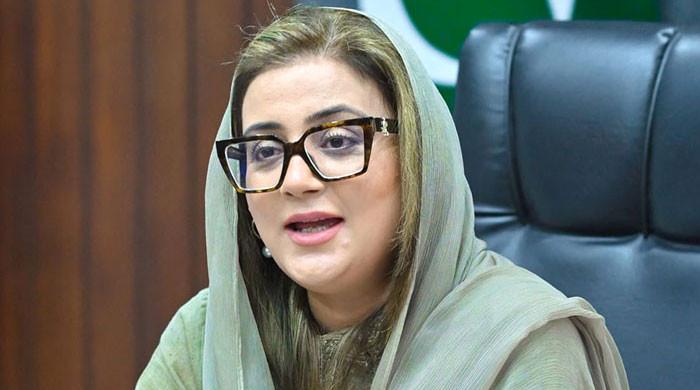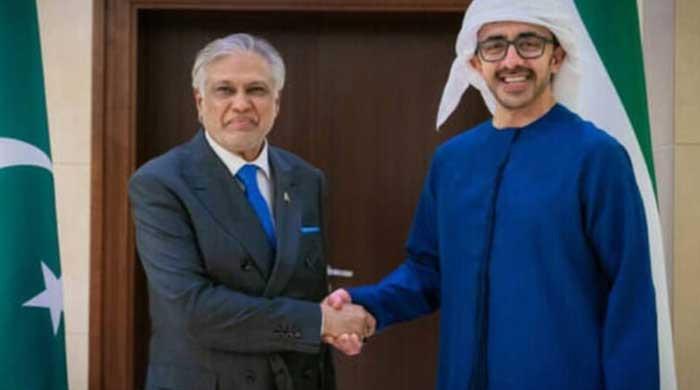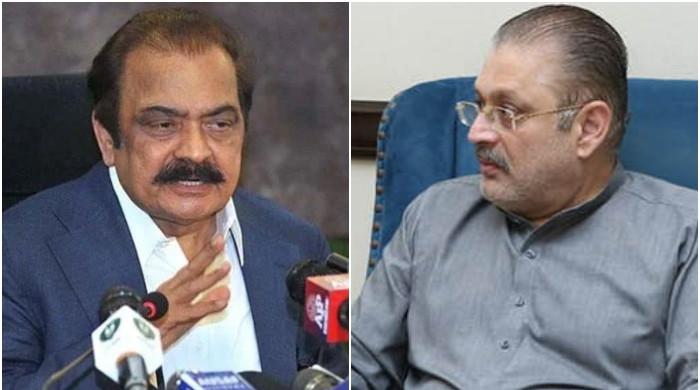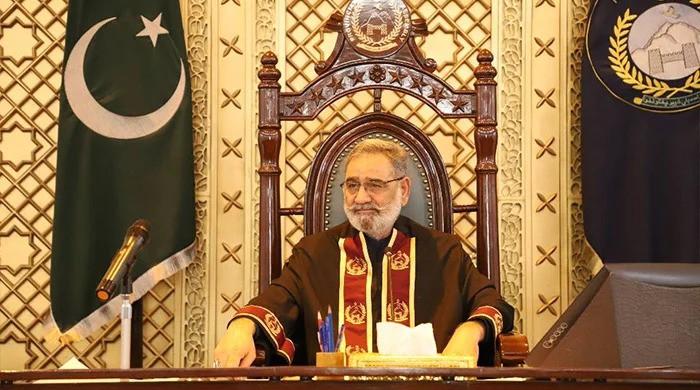Musharraf govt ignored official warning of bloodshed on May 12
Background interactions and "confidential” note of the then Chief Secretary reveals that a few days before May 12, the governor Sindh and the then CJ SHC had agreed to ban all rallies to avert...
August 02, 2016
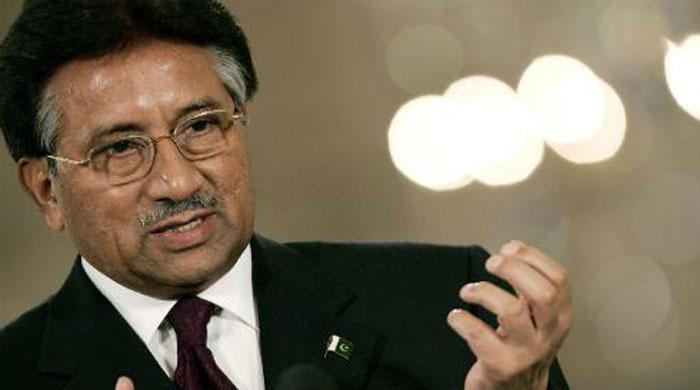
ISLAMABAD: A critically important “confidential” official note on the 12th May 2007 massacre in Karachi, available with The News, shows that not only was the Musharraf government warned of possible bloodshed but efforts were also made to ban all rallies. No heed was, however, paid to all these warnings and suggestions.
Background interactions and an all-important “confidential” note of the then Chief Secretary Sindh Shakil Durrani reveal that a few days before May 12, the governor Sindh and the then CJ Sindh High Court had agreed to ban all rallies and gatherings through an ordinance to avert killings. However, the governor did not get a green signal from Islamabad.
The chief secretary’s note sent to the governor and the chief minister on May 13, 2007 also revealed that how on May 11 the chief secretary, during an exclusive meeting of key officials of the law enforcing agencies, contacted the principal secretary to the then prime minister and warned “there was a better than 80% chance of violence the following day”. Still the Musharraf government did not listen to any recommendation to defuse the tension.
Some official sources, who have been part of the discussions and debates, confided to The News on condition of not being named that General Musharraf, Chief Minister Ghulam Arbab Rahim and the MQM were adamant to go ahead with the confrontational strategy which led to the killing of 48 persons, including 40 Pashtuns.
These sources said that the then Prime Minister Shaukat Aziz, Governor Ishratul Ebad, the then CJ SHC Justice Sabihuddin Ahmad, the then Chief Secretary Shakil Durrani, Home Secretary Brigadier Mohtarum and Additional IG Special Branch Bachal Sangri were among those who wanted to avoid the situation but they were ruled out by Musharraf and other confrontationists.
The chief secretary’s confidential note, copies of which are also with the Presidency and PM’s Office, criticised the MQM’s decision that it would hold a counter rally in Karachi and would not allow the Chief Justice of Pakistan Iftikhar Muhammad Chaudhry to reach the SHC.
The documents reveal that meetings were held on the 9th and 10th of May 2007 in the Governor’s House to seek means to pre-empt an ugly situation from developing and for reducing or eliminating the threat of violence.
No attention was paid to the advice of the Sindh government official to restrain or restrict the MQM and opposition rallies to distinct and different areas where these would be distanced from each other. “It was pointed that there would be serious clashes in case the opposing rallies were to come face to face and in the event of blood being shed the situation would be difficult to control.”
The note said, “It was clear to the senior administration and police officers that the situation was very dangerous and there were high chances of violence…”At this stage, according to the document, the Sindh governor and the CJ SHC took a very commendable initiative to defuse the situation. “The Chief Justice of Sindh High Court visited the Governor’s House three times and a consensus middle of the road understanding was evolved. This consisted of calling off and prohibiting all rallies, gatherings and meetings everywhere in Karachi through existing laws or through an ordinance for a limited period of time.”
The document then reads, “Light appeared to be visible at the end of the tunnel! However, hours later much to our surprise and regret it emerged that this understanding was not to be formalised and implemented. It appeared that preference was to be ‘given to peoples’ power through mass rallies over the application of stringent laws of the State.”
An official source explained that following an understanding between the governor and the CJ SHC on May 10th, the former contacted Islamabad the same evening but he failed to get go-ahead from Musharraf.
According to the document, “The next day i.e. 11th May the Chief Secretary called an exclusive meeting of the Home Secretary, Director General Rangers, Provincial Police Officer, City Chief Police Officer Karachi and the Additional Inspector General (Special Branch) to discuss and evaluate the situation on the ground.”
It added, “The informed view of this meeting was that the situation was ominous and that there was a better than 80% chance of violence the following day with the probability of it spreading along ethnic lines as by and large all political parties in Karachi are ethnic based. These views were immediately conveyed on telephone, in the presence of the attendees, of the meeting to the Principal Secretary to the Prime Minister.”
According to a source, following this warning from top provincial administration the then principal secretary to the PM spoke to Shaukat Aziz, who then contacted Musharraf to avoid the confrontation on May 12 but failed to convince the dictator.
The CS’s confidential note said that later in the evening of 11th May, the police blocked the Shahrae Faisal at a number of places to prevent rallies from reaching the airport. Activists of the MQM similarly blocked roads in other parts of the city, effectively preventing any movement of wheeled traffic so that by 12th morning the entire city was effectively sealed.
The CS wrote, “The four jeeps earmarked for the CJP entourage could not reach the Airport. The Home Secretary Sindh, the Provincial Police Office Sindh and District Coordination Officer Karachi went to the airport by helicopter to apprise the CJP of the situation on the ground which by then had become even more tense and violent.
The CS added that during the course of the day incidents of serious firing and burning of vehicles were reported from Malir, Landhi, Banaras Chowk, Sohrab Goth, Qasba Colony, Patel Para, etc.”
The chief secretary added, ”The Police and the Rangers were deployed in strength but in some areas where intense firing occurred their absence was clearly felt and firing continued at some places for hours. A lot of public criticism of the police and the Rangers has been seen of these two agencies.”
The 13th May note of the chief secretary added, “No attendance was possible in offices, the commercial centers were shut and the lawyers found it difficult to reach the High Court. The economic loss to Karachi was colossal. The Chief Secretary Sindh High Court called the chief secretary on telephone early in the morning stating that judges were unable to reach the courts which he said was most unfortunate. He also mentioned that sadly his compromise proposals were not accepted, which could have averted the unfortunate happenings.”
The sources said that the then chief minister got upset with the chief secretary for writing all this. Few weeks later, the chief secretary was removed by Musharraf on CM’s recommendations.
- Originally published in The News







